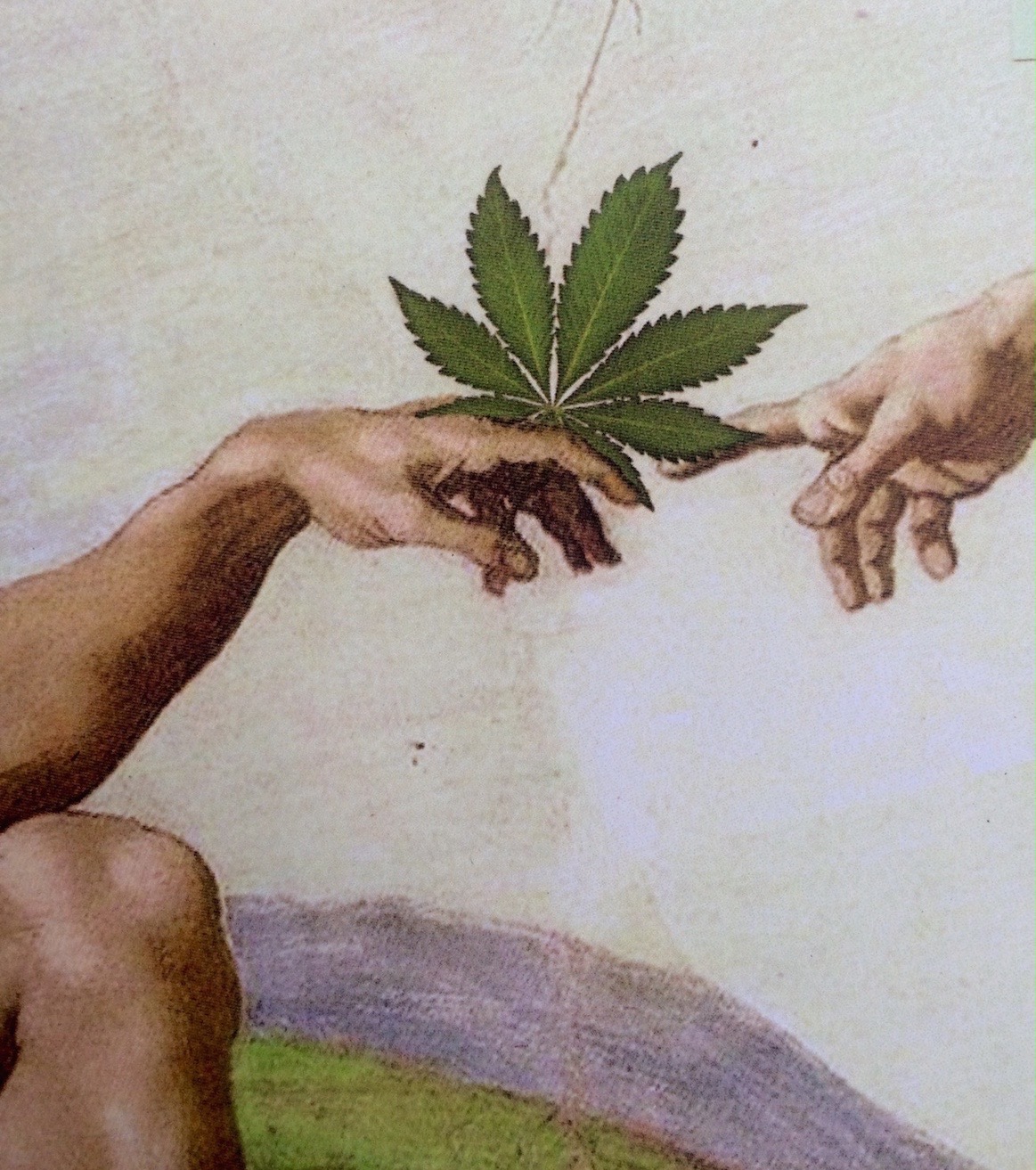Reflections on the “Therapeutic” Qualities of Cannabis
Reflections on the “Therapeutic” Qualities of Cannabis started as an email message from an enquiring mind to several of his friends. For this purpose the philosophically inclined investigator is going by the handle “K.L.” As a side note, I have to restrain myself from railing here about the woeful ignorance that keeps a remarkable plant illegal in my country and prevents many good citizens like K.L. from coming out of the cannabis closet. In any case, these are thoughtfully considered ideas and questions and I reprint the piece with K.L.’s permission (and request for anonymity).
*
With a Little Help . . .
I’ve been reflecting lately about the “therapeutic” qualities of cannabis. And while it’s true that I guess thousands of medical cannabis “patients” in Vancouver are using a convenient diagnosis (in my case it’s psoriasis) to access herb so that they can get high, it’s also true (just my opinion) that being high is itself a therapeutic, or balancing, or harmonizing element. It’s not just the chemical constituents, such as CBD, that are helping people (though that research and future treatments therefrom are important). The being high—courtesy of THC and its many mysteriously coevolved cannabinoid partners—can become healing in itself; can offer not only reduction of pain, but actual expansion of pleasure, of simply feeling good being alive, which is pretty good if you think about it. And do our governments want Canadians feeling good? Well, maybe… if it’s carefully regulated—and “medical” only, no recreational use allowed!
Yes, we do need public education, so average folks can consider whether and how cannabis might be a useful ally, a stress-releaser, a relaxer, an undepressant, an energizer/enchanter, a specific treatment for health issues, a communication-enhancer, or a creativity catalyst, etc. for them. And along with that (as Stephen is indicating in his ‘cannabis and spirituality’ work), how to be stoned is something one can learn “with a little help from our friends”, and the life healing/harmonizing (shall we say ‘spiritual’) ways can be tuned and refined with profound results.
And this is not to say that it’s only sitting still that is spiritual. One of the gifts of cannabis, for me, is that it can hugely enhance one’s awareness and feeling into anything one is doing or experiencing, and thus offer glimpses into how to do it differently, better or more beautifully. But there are definitely times for just sitting still and surrendering, too—for the learning to percolate deeper than we think. And Santa Maria, as they call it, has quite a bit to show us in this regard.
It was interesting to hear from Vancouver dispensary folks last weekend that a lot of their new clients are seniors seeking relief from symptoms, not wanting to get high. (Or is it maybe old heads just signing up to revisit highness, courtesy of a convenient diagnosis?) So I think cannabis as cheaper/safer/more effective than pharma is getting traction out there, and will only increase. Not that the herb is a panacea (notwithstanding the raves of grateful ‘addicts’), but it has a place as a familiar medicine in our cabinets and that needs to grow to engender wellness in society more broadly. Pharma, the booze lobby, various pleasure police, etc. will obfuscate and oppose this: “Just feeling good can’t be good for you” and the many caricatures and innuendos about stoners. Can’t we welcome and normalize a little more diversity in our states of feeling and consciousness?
Educational Talking Points
Similarly, education needs to be real and substantial and above ground about:
1. appropriate use (when, why and how one would use cannabis are not givens and vary widely among people) 2. harms and their reduction:
* is it addictive? what does that mean really? – what is the down side? – what is recovery?
* how does it affect our relationships?
* does it maker us smarter or dumber?
* when to be careful NOT to use it
* best practices for safe & efficient ingestion
* does it really impair drivers? (cannabis-only drivers are usually much MORE careful than others)
* does it really inherently damage teenage minds?
* can it become a personal, habitual smokescreen helping us avoid dealing with real life issues?
* why do meditative traditions mostly avoid cannabis use? what do they know—and is that up to date?
* what can be its place in a good life? Can its ‘creative inebriation’ expand our human repertoire of useful altered states (beyond just alcohol, nicotine, caffeine, antidepressants, and pizza)?
etc.
Coyote Qualities
There’s also something about this very ancient plant intelligence that eludes our pragmatic programs, a sort of Coyote quality, where all the kings horses and all the kings men can’t exactly define it, commodify it, or definitively characterize what the hell it is. Good Drug? Bad Drug? Medicine? Plant ally? Easer of tensions? Healing Essence of Gaia? Corrupter of our youth? Spiritual Ally from the Heart of Nature helping us humans to wake up, settle down, and be wiser elements in the planetary whole? Communionist-inspired Opium of the masses? Aphrodisiac? Analgesic? Celebrant? Sacrament? Sleep aid? Truth Serum? The Devil’s Diabolical Delusion? Mother’s Little Helper? The World’s Most Useful Plant?
I think it’s this quality of breaking our mindsets—as it has been doing longer than any other plant ally, at least a few thousand years—that makes Cannabis Sativa so useful in resetting our being, our focus, and our purpose for being alive. And that’s healing. It may not always look pretty, or orderly, or easily fit into formulaic social programming. And it’s not for everybody, but it can still be helpful to us as living beings.
And perhaps a higher THC level in human bloodstreams worldwide would be a good thing, a peaceful thing. But that’s another story.
Sincerely,
K.L.




Leave a Reply
Want to join the discussion?Feel free to contribute!